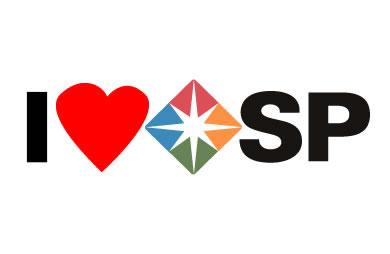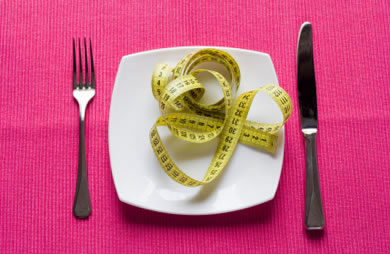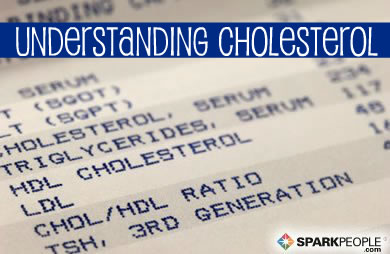|
I freely admit that I'm a perfectionist. I like things done a certain way and sometimes get frustrated when things don't go as planned. I spent many years putting too many items on my daily to-do list, then easily discounting all my daily accomplishments when a few things on the list weren't completed. The past few years, I started getting tired—not just the tired like you feel at the end of a long day, but a really worn down kind of tired. I blamed the fact that I'm a busy mom with lots of responsibilities, but deep down I knew that some of what was happening was totally under my control. The expectations I was setting for myself were too high, and I was constantly struggling with falling short. I was trying to be a superstar in all areas of my life and it wasn't going well. My husband encouraged me to think about my daily tasks and whether or not they all really needed to be on the to-do list. Did the house need to look spotless every day? Did I have to make a complicated dinner every night, or were sandwiches okay sometimes? Did I have to be the first one to volunteer for every project, or could I take a backseat and let others step up? As I thought about the answers to these questions (and more), I also had to think about why I was setting these unrealistic expectations for myself. As much as I I'd like to think I'm not concerned with other's opinions, I don't like to disappoint anyone. That alone has caused me to try to be great at everything, which is impossible long-term. It's been a slow process and many times I still take on more than I should, but I'm learning to shift my priorities. I can't be great at everything—no one can. However, I can be good at the things which are most important, and good enough at the things that aren't. But what does "good enough" really mean? Does it mean that you don't put any effort into certain tasks? To me, "good enough" means that instead of elaborate homemade birthday treats for your child's class, you buy a box of cookies from the store. Instead of doing your planned 45-minute run, you ended up taking a 10-minute walk. When you ran out of time to make a healthy dinner, you opted for the healthiest option at your neighborhood fast food restaurant. None of these things should be considered failures even if they are less than your ideal. "I think we let too much of society define what is best or good enough for us," explains GARDENCHRIS. "I am 64 years old, in reasonably good health and I am still out in my garden working. I don't move as fast as I did when I was in my 20s, but I have reached a point in life where I don't care what other people think of how I look, whether I wear makeup or not, what type of clothing I decide to wear, nothing! I decide what is good enough for me, no one else. Do I try to improve my activity or what I eat? Do I sometimes mess up or think 'whatever?' Of course—it's called life. But I don't dwell on it and I move on." When it comes to adopting a healthy lifestyle, it's easy to get caught up in perfection. You ate too many sweets at the neighborhood potluck, therefore, the week has been a total disaster, for example. Why jump to such a dramatic conclusion? In that split second, you've quickly erased from your memory all of the positives from this week—you tracked your food daily, stayed in your recommended calorie range six out of the seven days, exercised three times and got a good amount of sleep. Was the week good enough even though it wasn't perfect? Based on the fact that the good points far outweighed the bad, the week seems to have been a success. Living that 'Good Enough' LifeMARYALICE411 believes everyone needs times when "good enough" is enough to prevent mental burnout. "Yesterday, my two-year-old grandson looked at me and said, 'Walk with grandma?' so we went for a walk. I live in the country. We fed the pony, collected rocks, watched the bugs, smelled the flowers and took slow, little steps. Yes, my step count was down for the day and, no, it wasn't a brisk, aerobic walk, but it was good enough. I walked with a two-year-old and saw the walk in a whole new way," she recalls. PATRICIAAK has a simple way to determine her success: "When I can say I did my best, no matter what others say or do, it's good enough." "I don't set high expectations other than to do the best I can," says SLIMMERKIWI. "That way, I can't beat myself up for not achieving them, and it means that I live a happier life. That applies to food and anything else—I do what I can, when I can; I wear what I want; [and] I don't give two hoots what others think. They aren't me. They don't know my likes, dislikes, wants or needs—only I know all of that." "In 2017, I signed up for a half marathon but a number of factors left me untrained for the event," explains SHEENADEE. "I was sad and pouty and feeling so disappointed in myself for not preparing for the race. If I couldn't do the half marathon, I didn't want to do anything, because considering a shorter race seemed like a failure." SHEENADEE finally decided to change her mindset and do as much as she could, switching to the 5K event and walking it with a friend. "I decided the 5K was good enough and better than doing nothing. I still had a sense of accomplishment, and it was a good kick start for me to get back on the wagon with my walking." How to Decide If 'Good Enough' Is Enough for YouWhen determining whether you should settle for "good enough" instead of striving for perfection, ask yourself these three questions:
Have you learned to accept 'good enough' in some areas of your life? If so, how? |
More From SparkPeople |

















.jpg)



